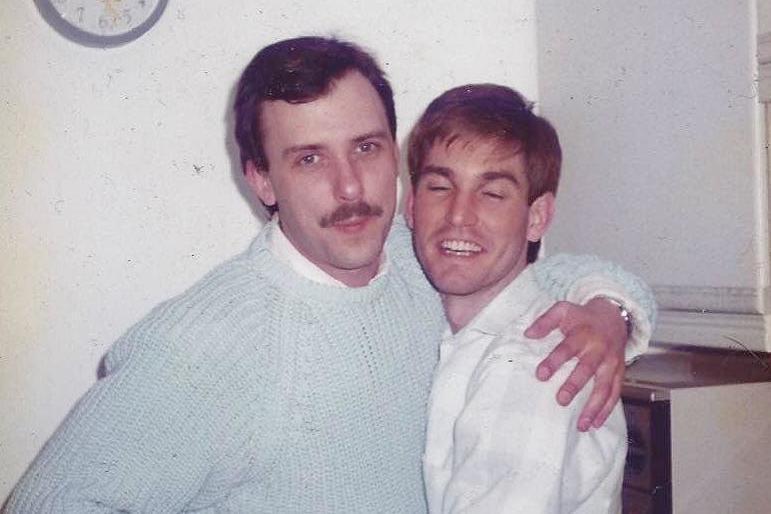AIDSfree: 'I was in denial' – one man remembers the partner he lost to Aids
Our Christmas campaign is raising funds to help create a world where no one has to die from Aids

As our Christmas campaign continues to raise funds for the Elton John AIDS Foundation, a man whose former partner died due to Aids has spoken of his loss.
Greg Olsen was 29 when he died of an Aids-related illness in 1989. He only found out he was HIV positive six months earlier.
“He just became weaker and weaker and was losing a lot of weight,” said Leigh Barss, his partner at the time.
Olsen spent his last days in the Broderip Ward, the country’s first Aids ward at Middlesex Hospital, which was opened by Princess Diana in 1987.
“I was in denial,” said Mr Barss, 61. “On the day of his death, I bought him a jumper ready for his discharge.
“That evening I got a phone call from the hospital. It finally hit me he wasn’t going to survive. He died that night.”
Olsen was American and was in the US air force when the pair met. “I met him in Greece where he was stationed,” Mr Barss said.
Olsen moved to the UK after finishing his service and worked as a data input clerk. He married a female friend in 1986 so that he could remain in the country.
“We were madly in love. We had two wonderful, incredible years and then we found out he was positive,” said Mr Barss, a retired property developer from Hackney.
The couple, who lived in Marylebone at the time, travelled to Olsen’s hometown in Idaho a few months before his death and he was tested there.
“In those days you didn’t want anyone to know about your status, so we gave false names and false addresses when we went to the clinic,” said Mr Barss, who was also later diagnosed HIV positive.
“We came back to the UK and he was becoming weaker by the day and we didn’t know what to expect.”
Fighting back tears, he added: “He was always so happy, so cheerful, always laughing, everybody loved him. He was such a beautiful person.”
Subscribe to Independent Premium to bookmark this article
Want to bookmark your favourite articles and stories to read or reference later? Start your Independent Premium subscription today.

Join our commenting forum
Join thought-provoking conversations, follow other Independent readers and see their replies